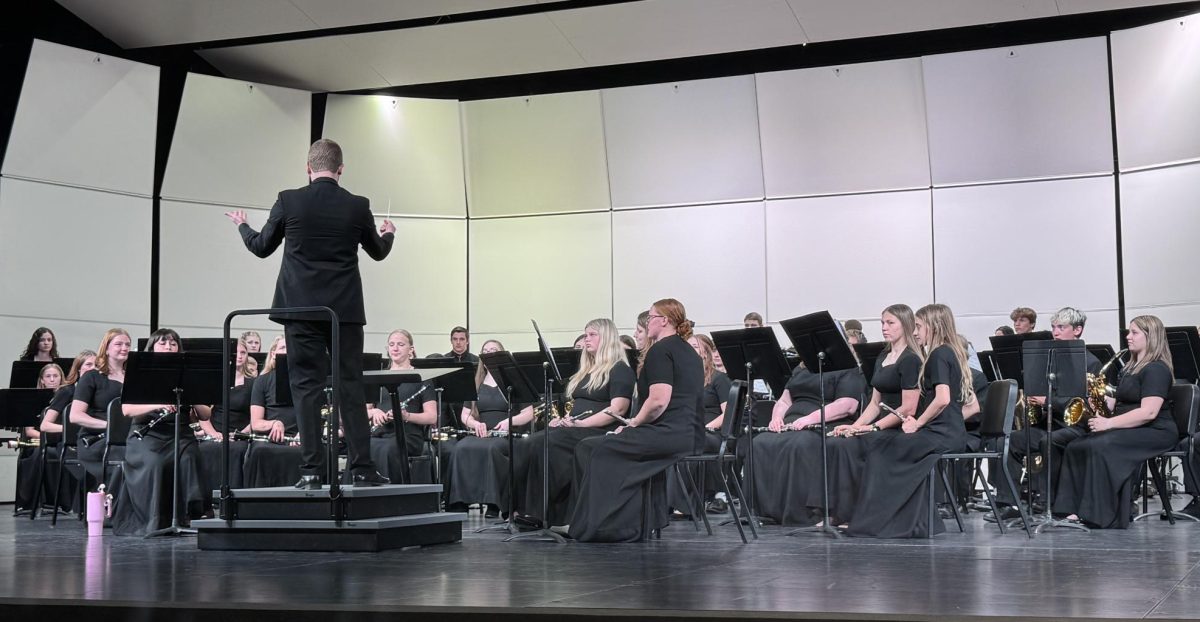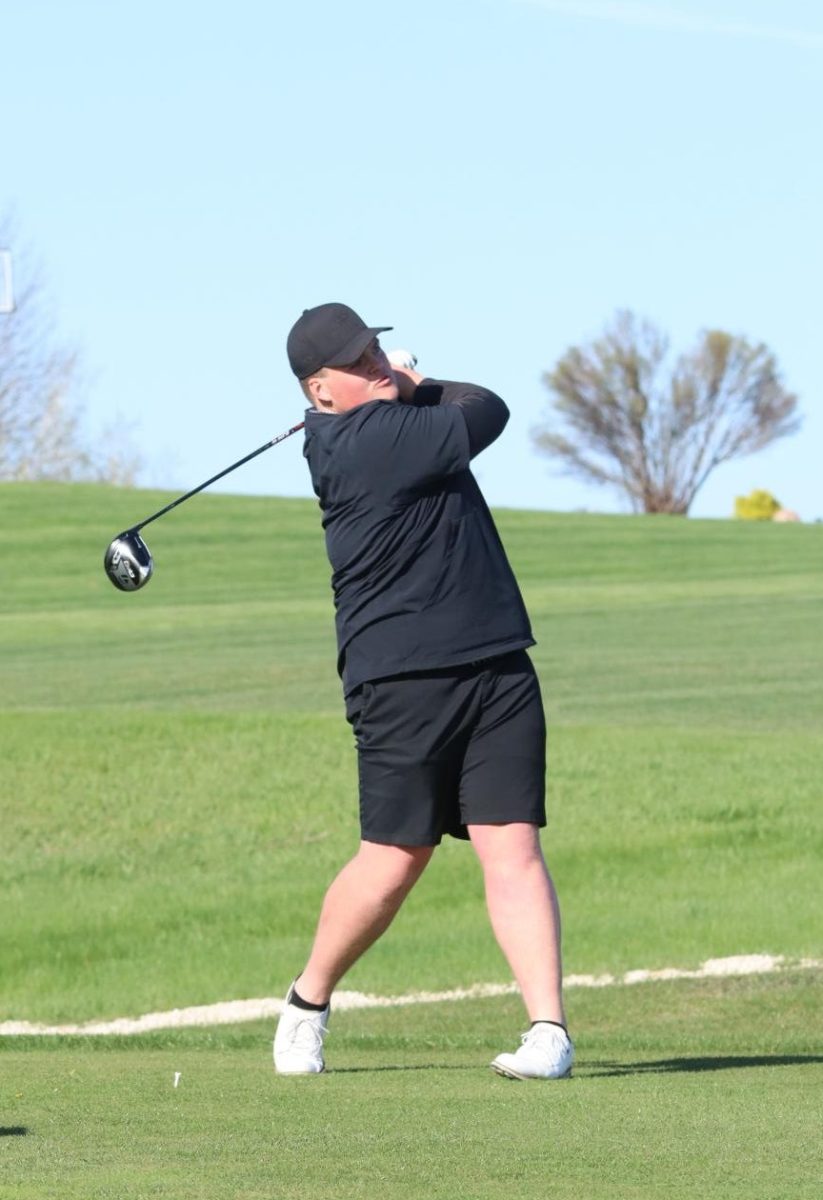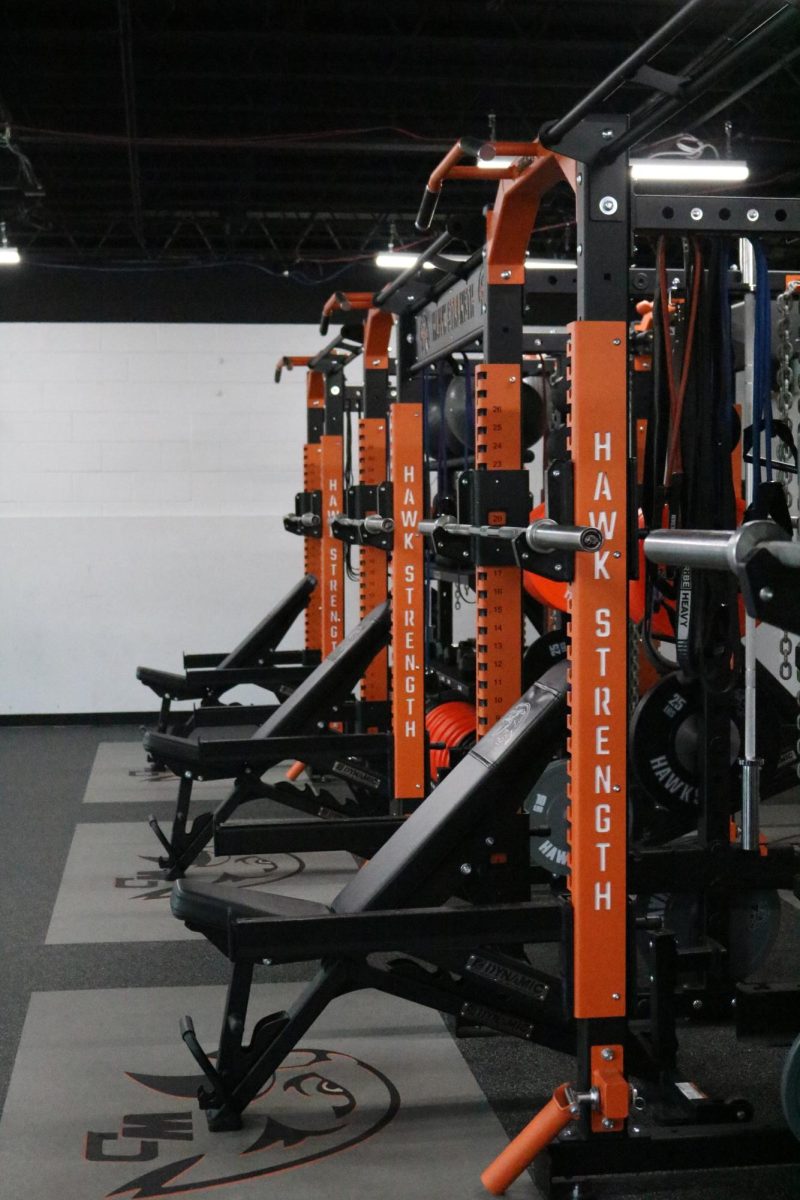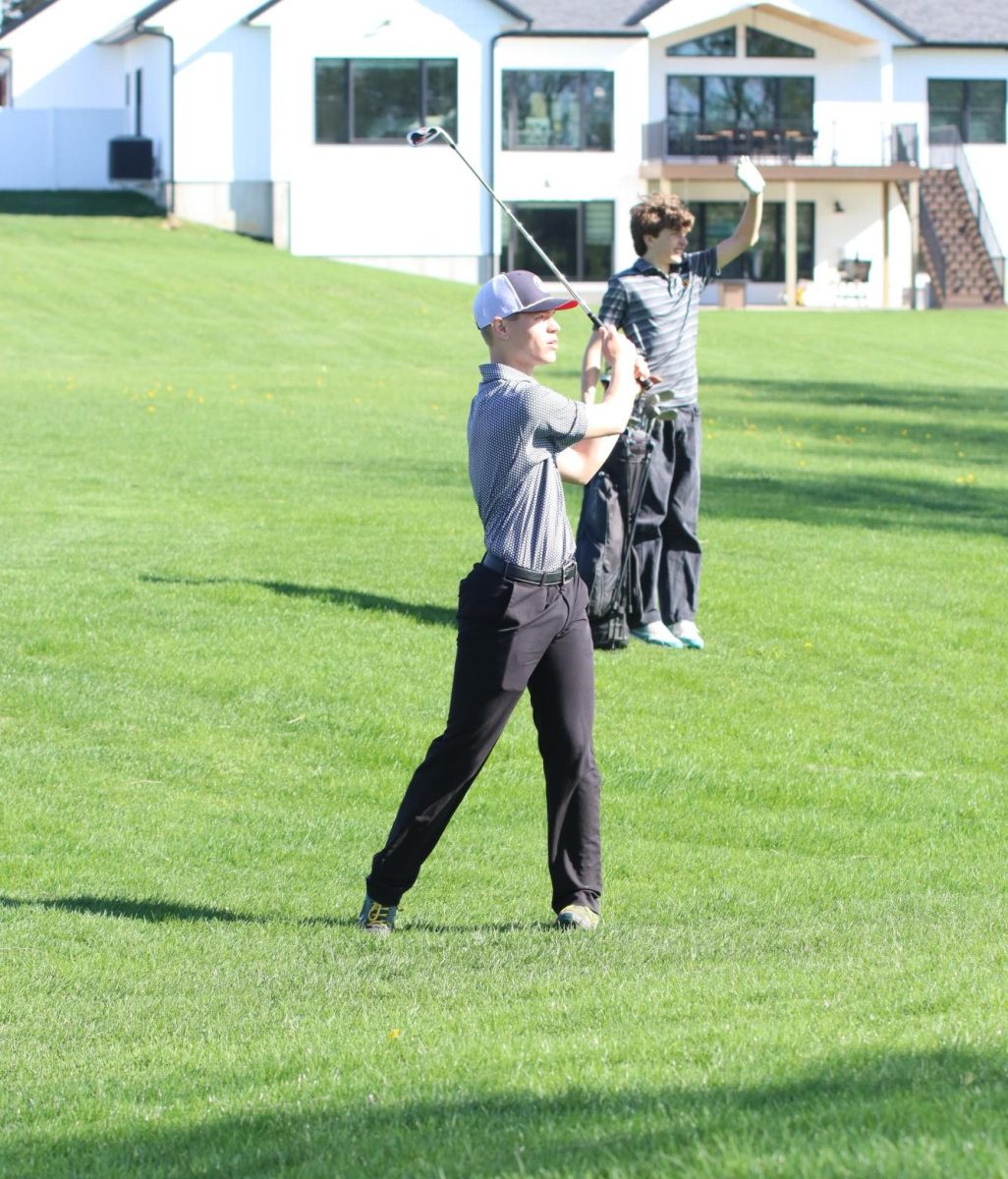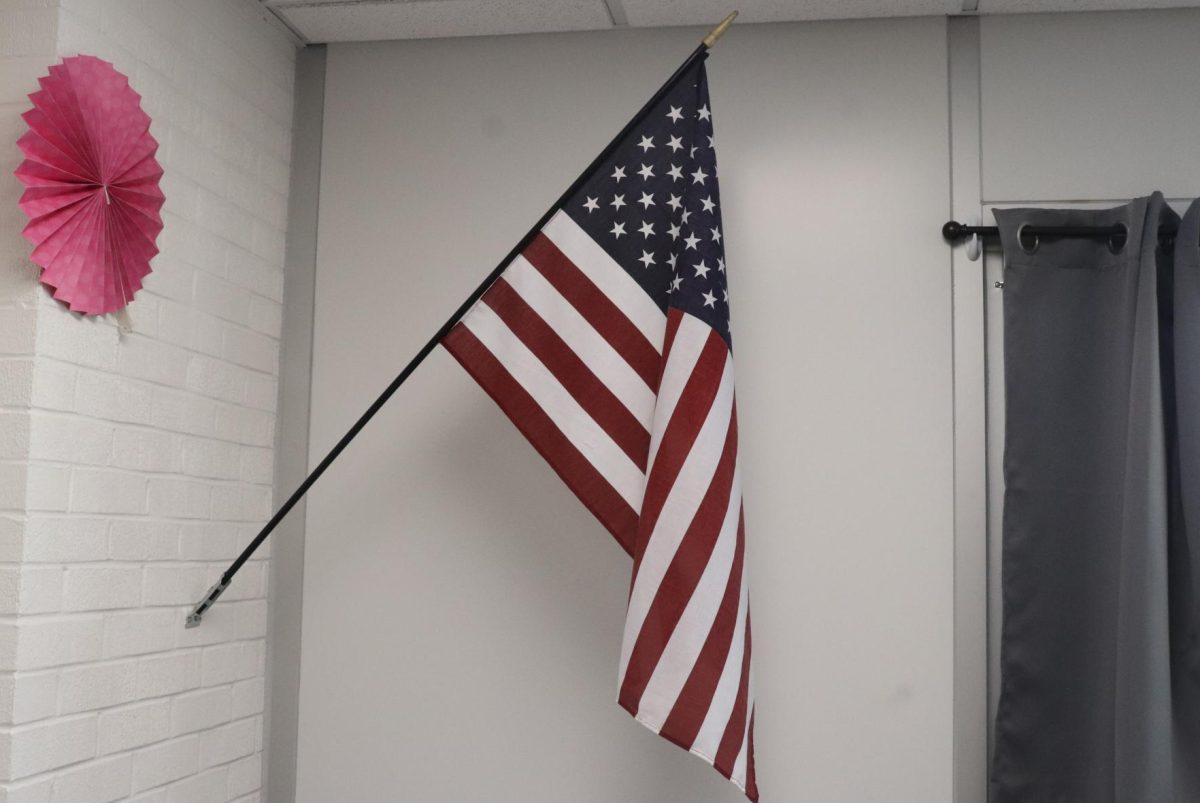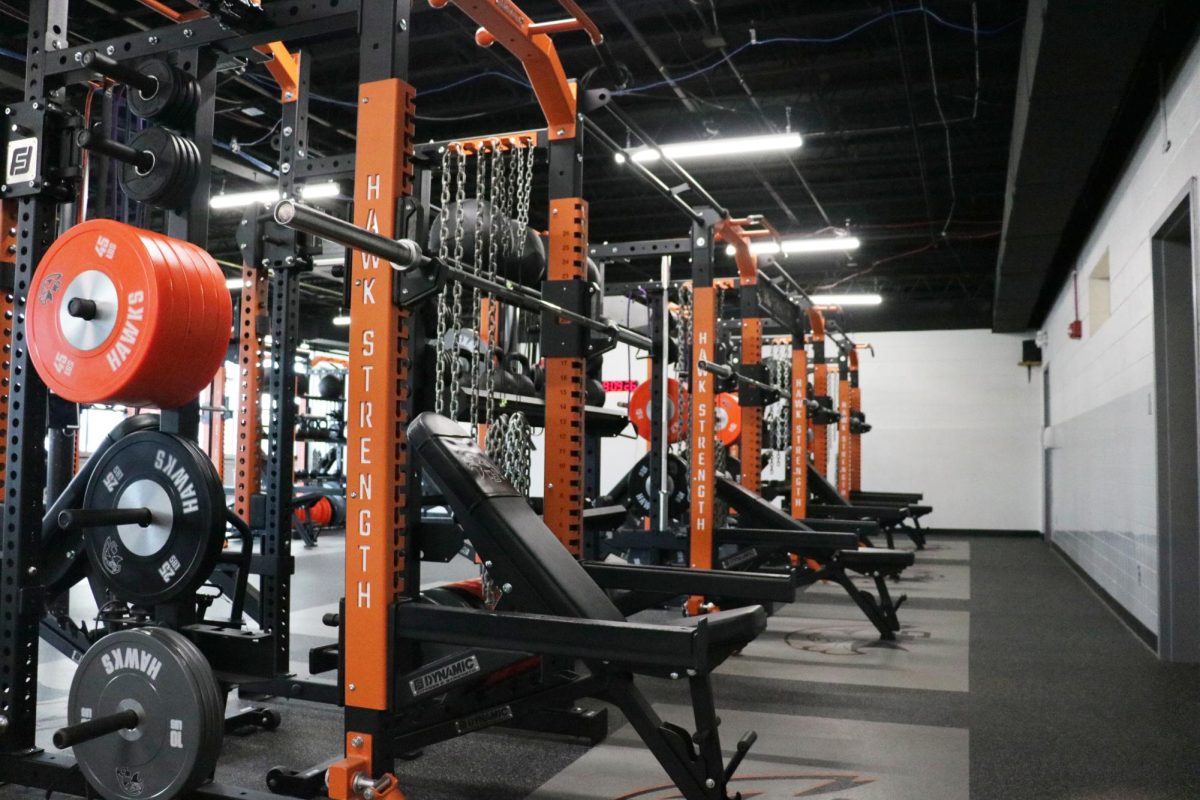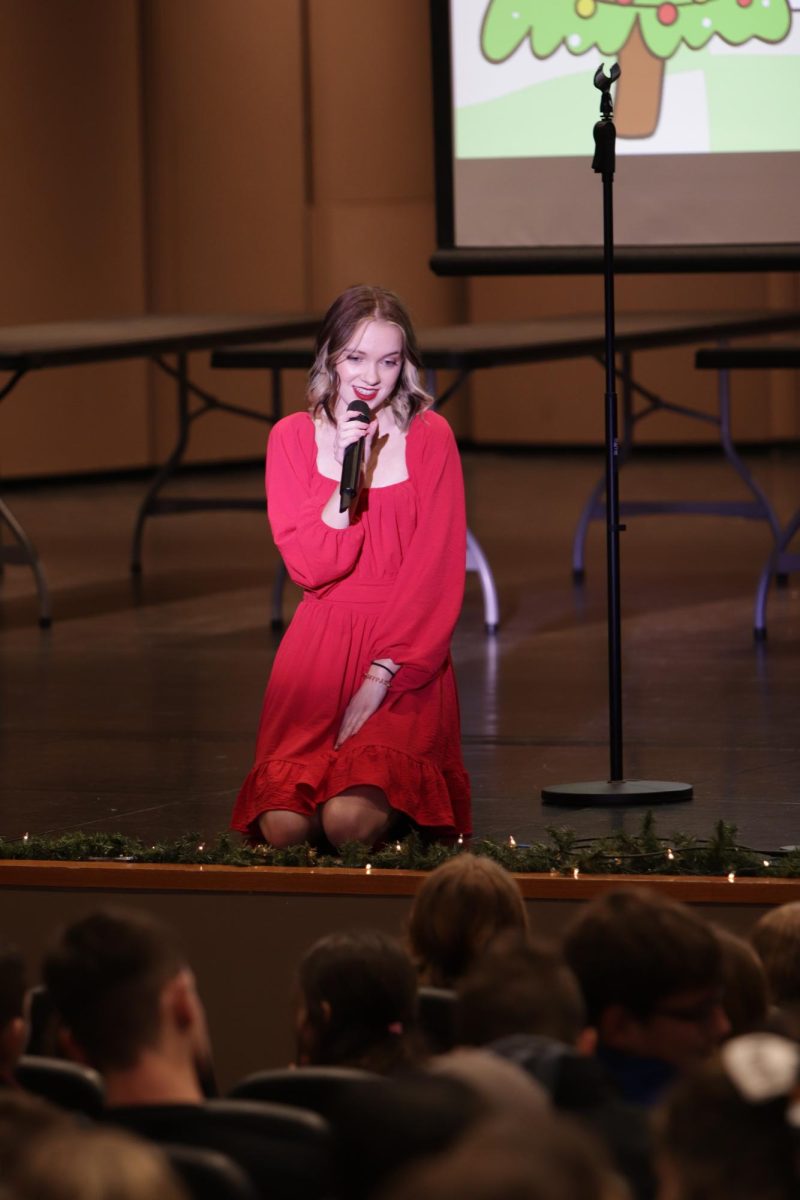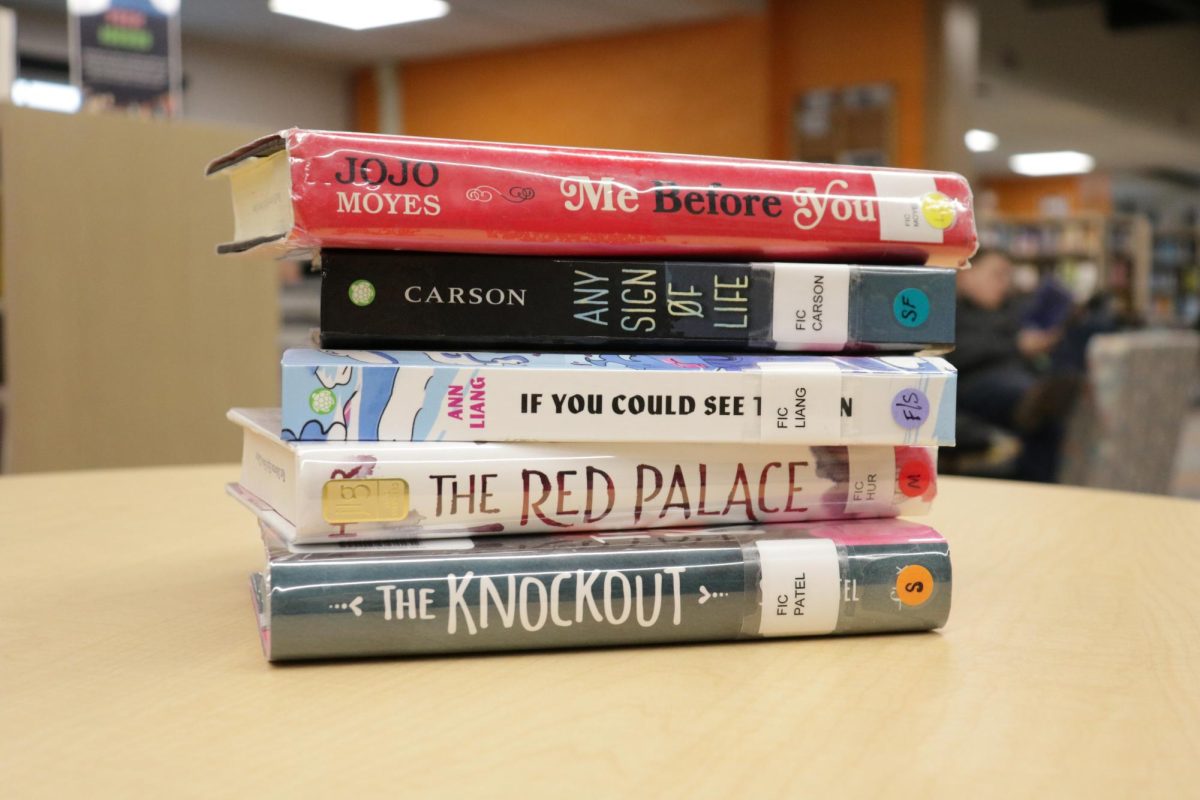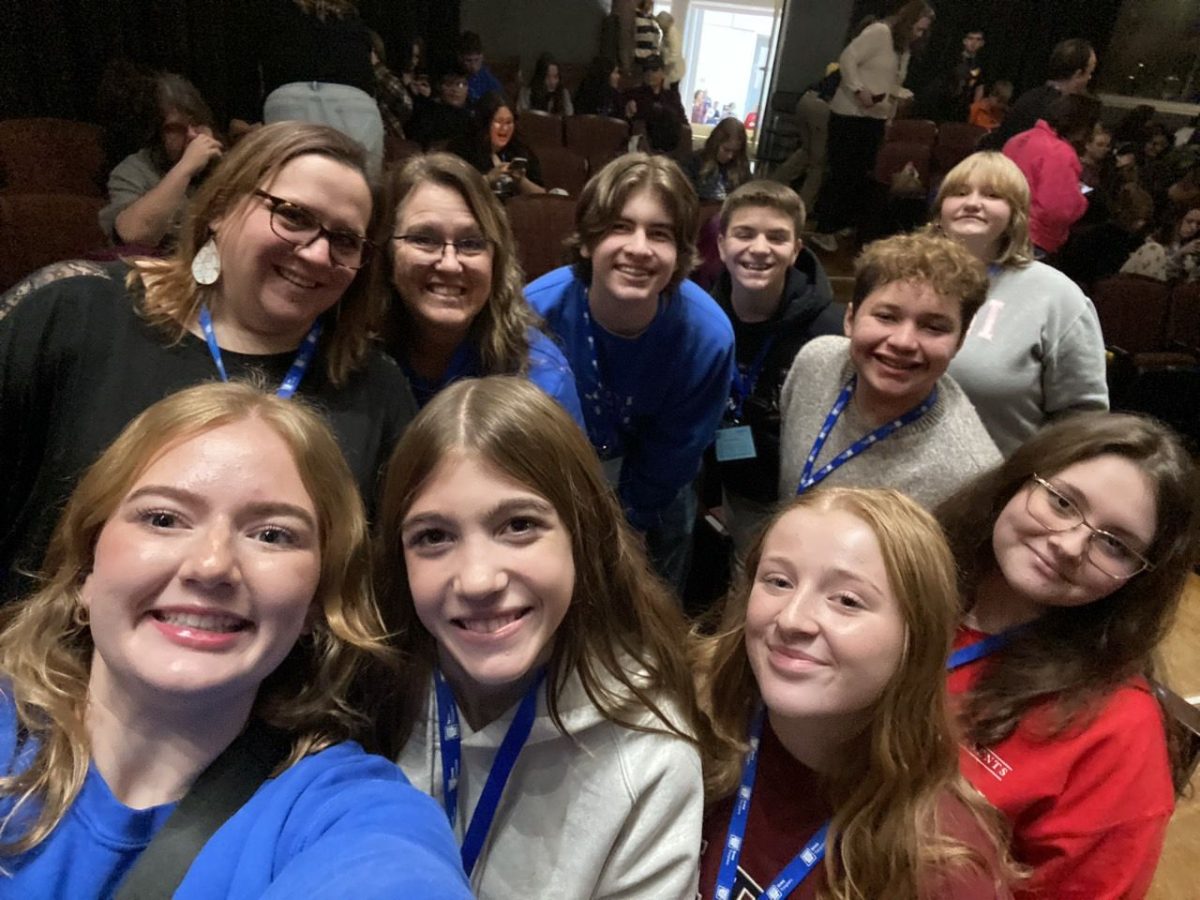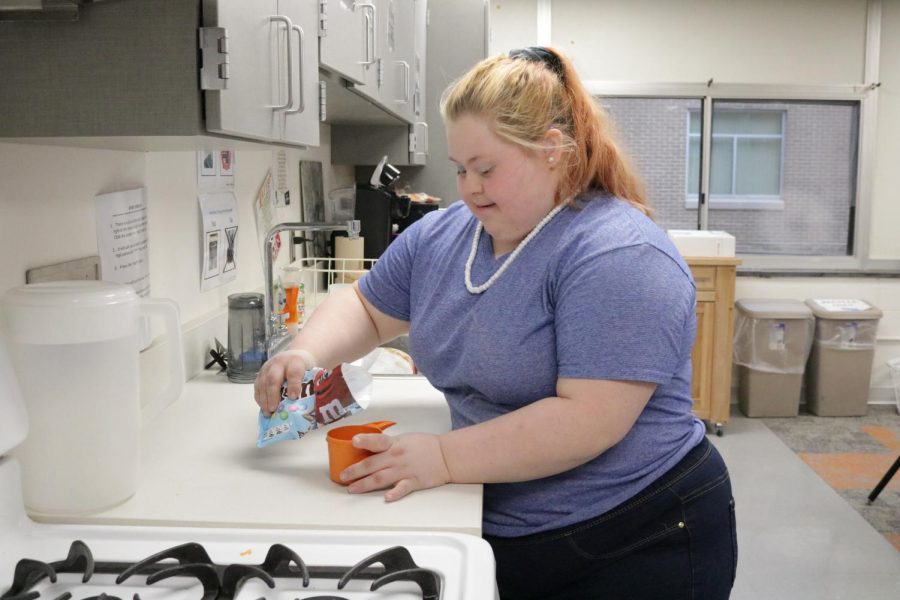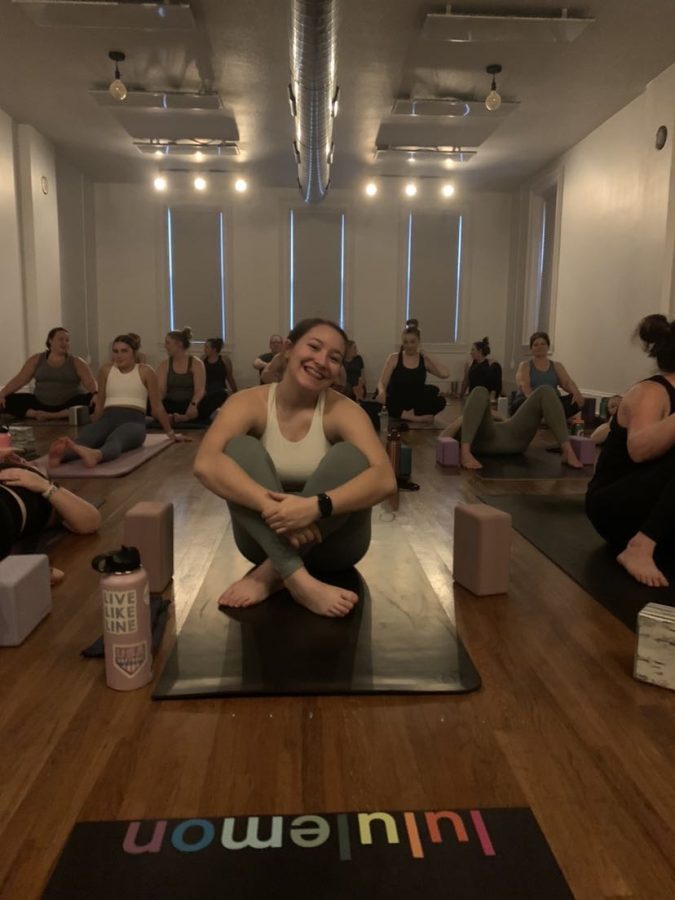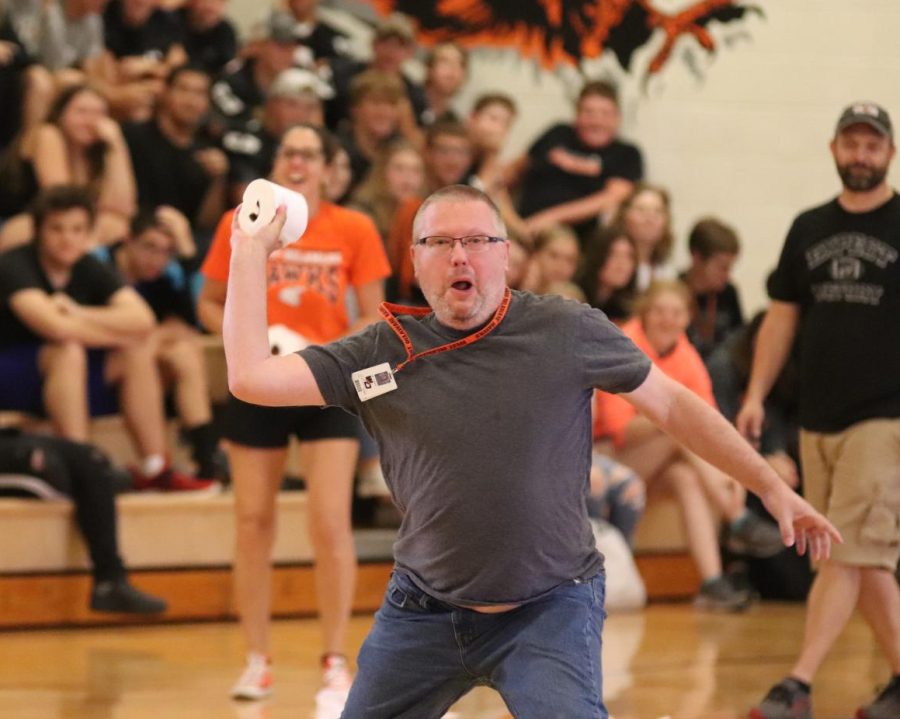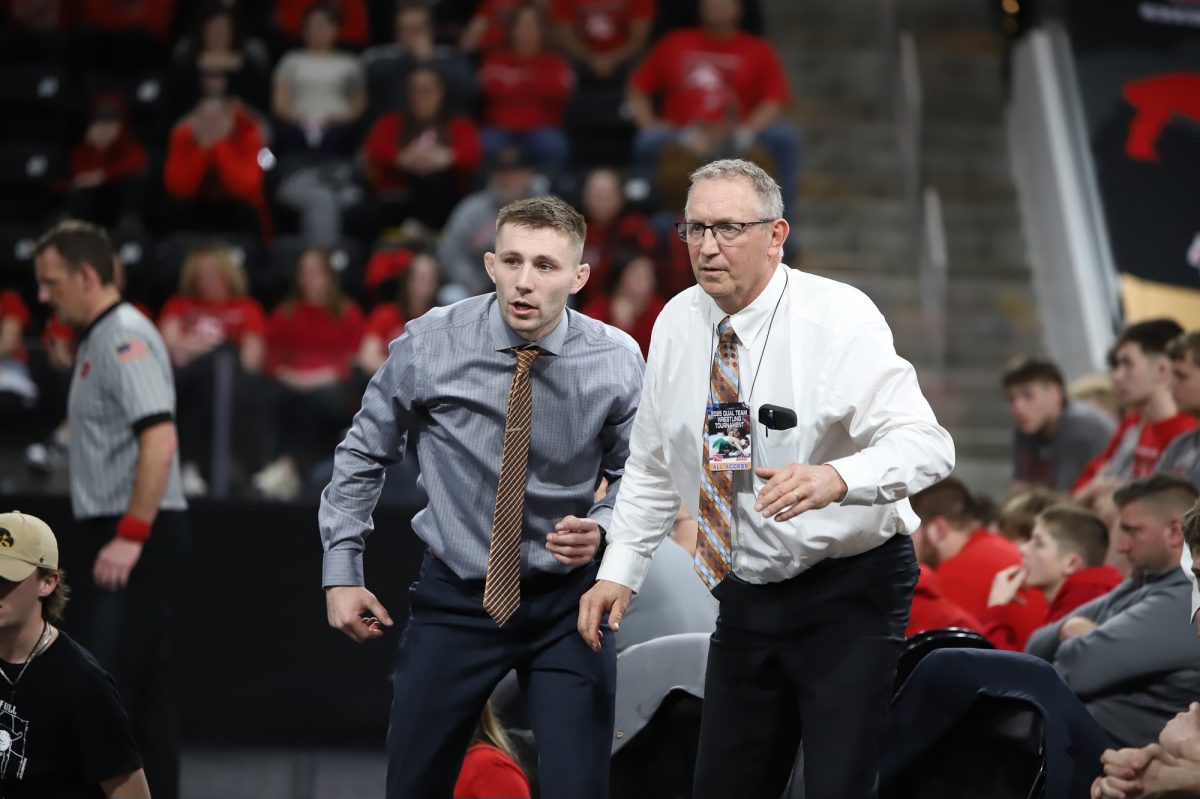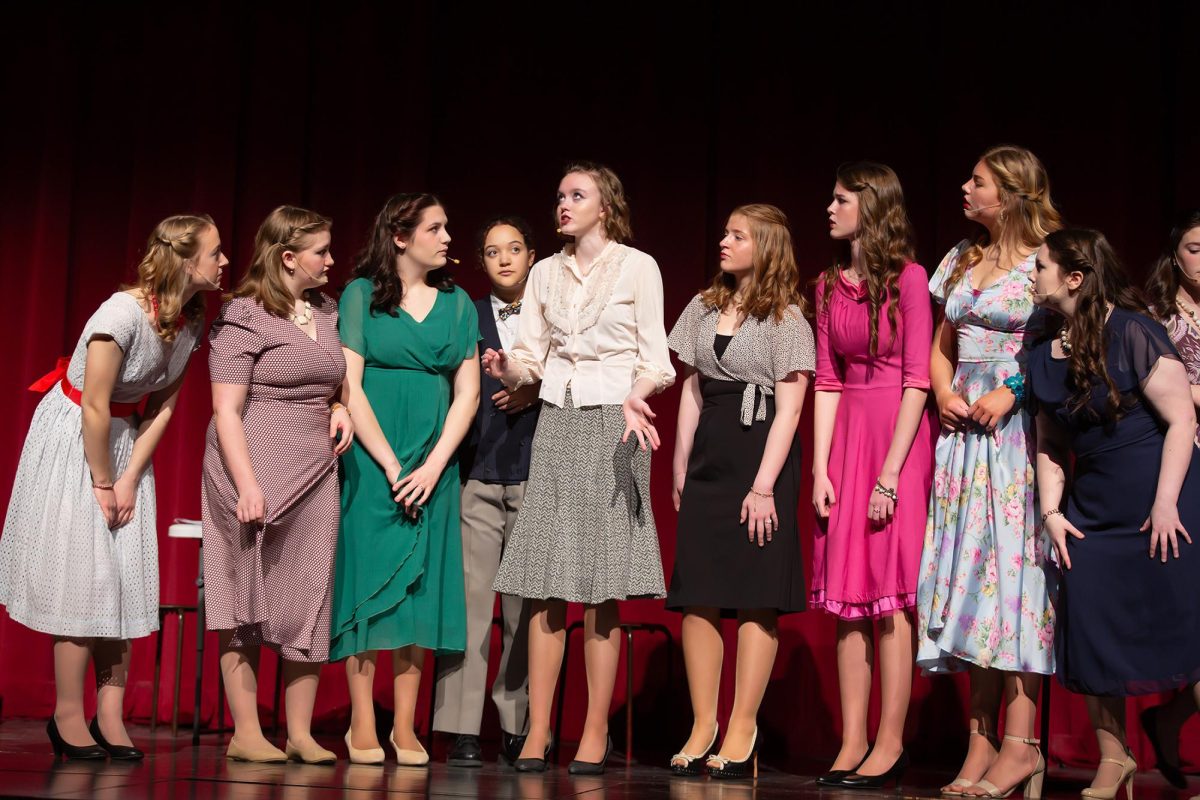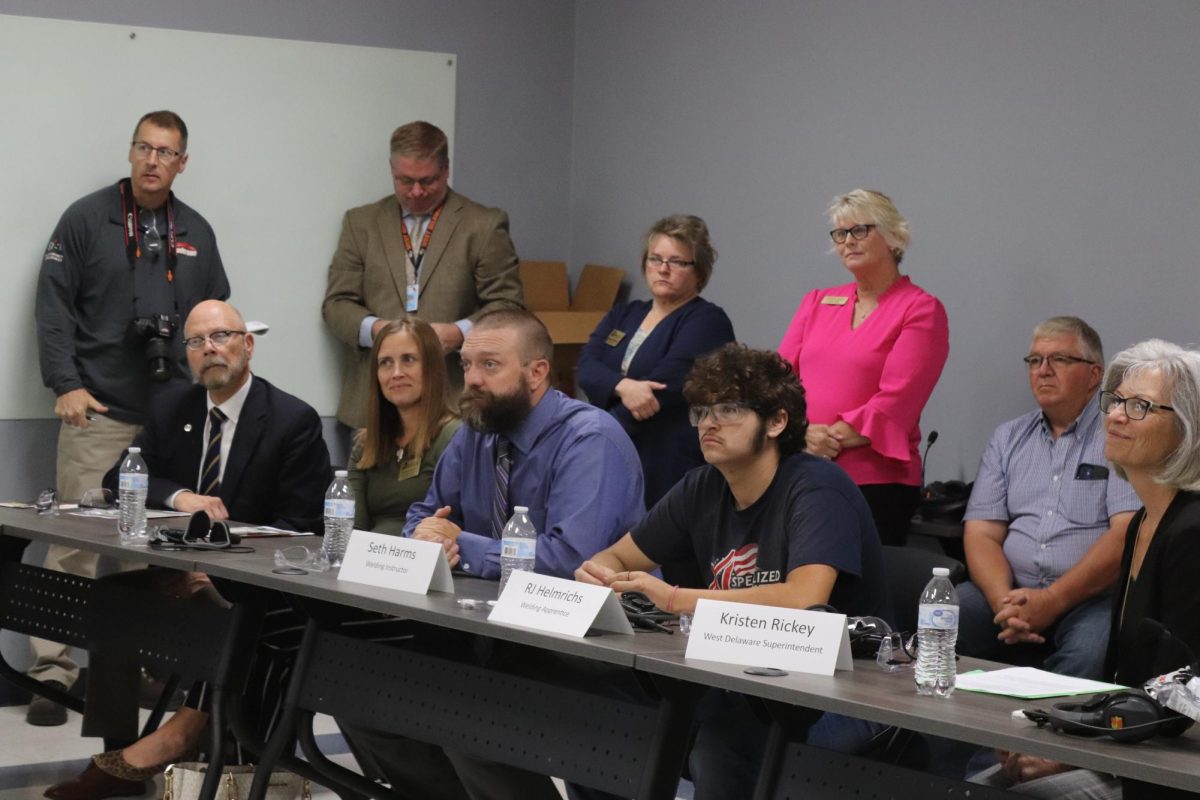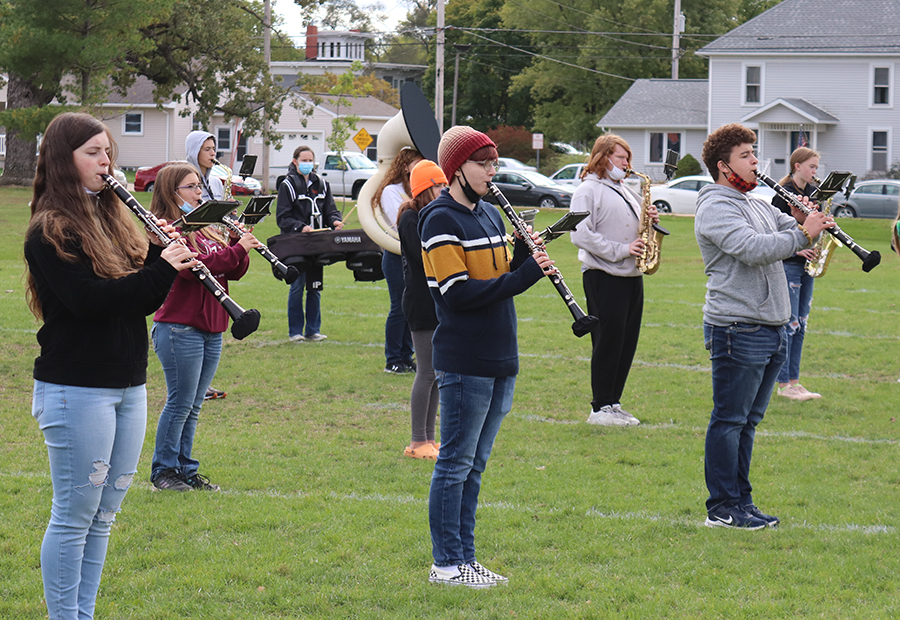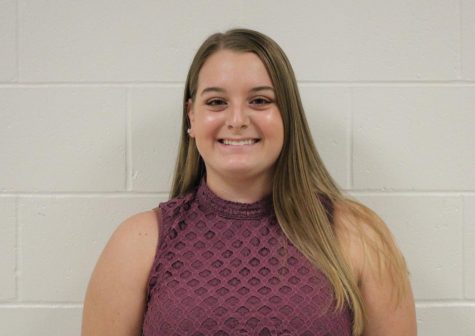Covering Up COVID-19 With New Bell Covers
Practicing their show “The Beatles,” the band rehearses with their new bell covers. The covers were purchased to slow the spread of the virus.
November 6, 2020
Masks for instruments. It may sound strange, but in light of the ongoing pandemic, marching and concert bands all across the country have begun to cover their instruments to prevent the spread of the COVID-19 virus. The West Delaware Band has recently received these masks.
A bell cover is a double layered circular shape of cloth with a filter embedded within the cloth which creates a barrier that prevents spit from the musician coming out of the bell (end) of the instrument.
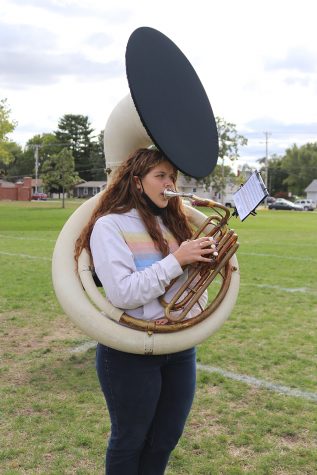
Band director Mark Philgreen purchased these bell covers for the band in order to decrease the spread of the virus among the band students. With the help from Principal Tim Felderman, 72 bell covers were purchased totaling $815 with the covers ranging from $9.00 to $16.50.
“The recommendation (to use bell covers) came from the High School Music Association, which came from the National Federation of School Associations,” Philgreen said. “From there, three studies were done at three universities that talked about the aerosol in the spray and the bell covers cut down on that.”
For some instruments, bell covers have become an obstacle for band students.
“I’ve found that lower notes have a harder time coming out and you have to push a little more air through the instrument in general to get the notes out,” Jacob Wenger (12) said as a 7-year tenor saxophone player.
Using bell covers is only one of the precautions the band has taken. Players must be spaced six feet apart and when they aren’t playing they must be masked up. During the marching season all practices took place outside on the practice field but have since moved indoors into Seedorff Gym. The band also practices with half of the ensemble due to the hybrid schedule.
Wenger appreciates the precautions in spite of the challenges. “I think it’s hard because we can’t practice as a full ensemble, but I also understand why we have to have the restrictions and rules in place,” Wenger said.


